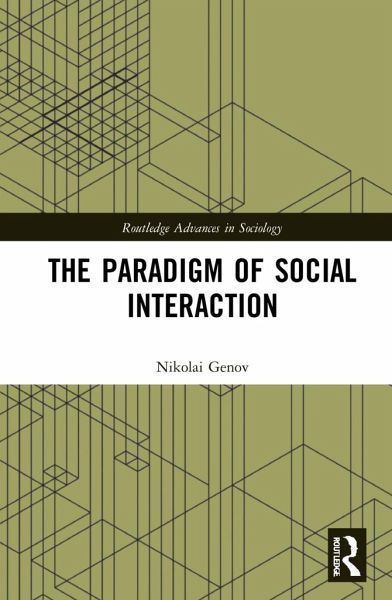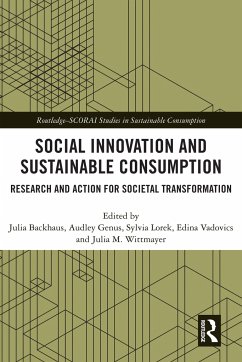
The Paradigm of Social Interaction
Versandkostenfrei!
Versandfertig in 6-10 Tagen
45,99 €
inkl. MwSt.
Weitere Ausgaben:

PAYBACK Punkte
23 °P sammeln!
The monograph The Paradigm of Social Interaction presents a paradigmatic synthesis in sociology. This is a reaction to the growing paradigmatic divisions in the discipline and an attempt at fostering the cumulative development of sociological knowledge.The suggested conceptual fusion includes micro-sociological interaction theories, recent theories of organizational interactions and the experience from the study on global trends. The intention is to support the building and explanatory application of middle-range theories in all action spheres and at all micro-, mezzo- and macro-social structu...
The monograph The Paradigm of Social Interaction presents a paradigmatic synthesis in sociology. This is a reaction to the growing paradigmatic divisions in the discipline and an attempt at fostering the cumulative development of sociological knowledge.
The suggested conceptual fusion includes micro-sociological interaction theories, recent theories of organizational interactions and the experience from the study on global trends. The intention is to support the building and explanatory application of middle-range theories in all action spheres and at all micro-, mezzo- and macro-social structural levels. The paradigmatic synthesis is developed around five analytical concepts of the determinants of social interactions: environmental, technological, economic, political and cultural complexes. Another conceptual framework fostering explanations consists of social actors, relations and processes as key parameters of the social interaction paradigm.
The book also examines the COVID pandemic as a multidimensional crisis, applying the synthetic paradigm as a heuristic tool and knowledge-organizing framework. It is used in the studies on social innovations, societal transformations and global social trends as well. The book will be of interest to researchers, university teachers and doctoral and master's students in the fields of sociology, social theory, critical sociology, philosophy of social sciences, innovation and societal transformation studies.
The suggested conceptual fusion includes micro-sociological interaction theories, recent theories of organizational interactions and the experience from the study on global trends. The intention is to support the building and explanatory application of middle-range theories in all action spheres and at all micro-, mezzo- and macro-social structural levels. The paradigmatic synthesis is developed around five analytical concepts of the determinants of social interactions: environmental, technological, economic, political and cultural complexes. Another conceptual framework fostering explanations consists of social actors, relations and processes as key parameters of the social interaction paradigm.
The book also examines the COVID pandemic as a multidimensional crisis, applying the synthetic paradigm as a heuristic tool and knowledge-organizing framework. It is used in the studies on social innovations, societal transformations and global social trends as well. The book will be of interest to researchers, university teachers and doctoral and master's students in the fields of sociology, social theory, critical sociology, philosophy of social sciences, innovation and societal transformation studies.














